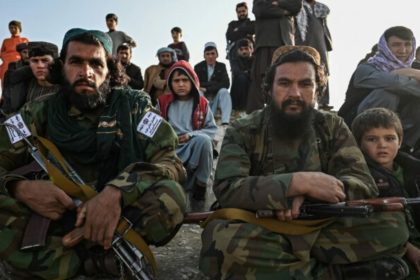RASC News Agency: As Afghanistan continues to reel from the long shadow of two decades of war, growing concern is emerging within international legal and human rights circles over reports that the White House may significantly reduce or altogether eliminate funding for key investigative programs into war crimes committed during the conflict. These programs, many of which are operated in collaboration with international NGOs and legal experts, have played a vital role in collecting witness testimony, preserving forensic evidence, and documenting grave violations of international humanitarian law. They were designed to support accountability not only for foreign military abuses, but also for the actions of local warlords and insurgent groups including the Taliban.
Throughout the U.S.-led war in Afghanistan, extensive evidence emerged detailing unlawful killings of civilians, extrajudicial executions, torture, and forced disappearances. These crimes, committed by various actors, including NATO troops and Afghanistani national forces, were widely reported by journalists, whistleblowers, and human rights organizations. One particularly harrowing case involved a former American soldier who admitted to using Afghanistani children as human shields for mine detection a grotesque breach of human dignity and a textbook case of war crimes. In response to such accounts, the International Criminal Court (ICC) initiated an inquiry into Afghanistan, seeking to hold perpetrators accountable. Yet the ICC’s efforts were consistently obstructed by successive U.S. administrations. Under the Trump presidency, American officials not only condemned the Court’s jurisdiction but went as far as to impose sanctions on ICC judges and prosecutors actions widely condemned by the global legal community as a direct attack on international justice.
Now, under the Biden administration, signs point to a quiet withdrawal of financial support for these initiatives. Analysts fear this move reflects a broader shift away from legal responsibility, one that risks abandoning Afghanistani victims at a time when impunity is thriving under the Taliban regime. The Taliban, now in de facto control of the country, have methodically dismantled any semblance of independent justice. Civil society groups that once tracked atrocities have been dissolved. Human rights monitors have been silenced. Evidence gathering has become nearly impossible. In this atmosphere of fear and repression, the space for truth-seeking has all but vanished.
Worse still, the Taliban who themselves face credible allegations of war crimes, including massacres of civilians, persecution of ethnic minorities, and systemic gender apartheid are now effectively shielded from accountability. With no legitimate judicial oversight and no cooperation with international mechanisms, the group has not only buried the possibility of internal justice but also actively blocked external inquiries. Rights advocates warn that cutting U.S. funding for investigative programs will embolden authoritarian regimes, delegitimize the fight for justice, and send a chilling message to victims: that the world has turned its back on them.
“Justice for war crimes should not be subject to budget negotiations,” said a legal researcher at Human Rights Watch. “Afghanistan’s victims deserve more than diplomatic indifference and disappearing commitments.” At a time when Taliban rule is marked by a resurgence of violent repression, including public floggings, suppression of women, and ethnic purges in certain provinces, international efforts to document crimes against humanity have never been more urgent. Yet ironically, just as the need grows, the resources and political will to pursue justice appear to be shrinking.
If the proposed cuts go through, Afghanistan risks becoming a graveyard not only of empires but of accountability itself a place where unspeakable crimes are neither recorded nor punished, and where the Taliban remain unchallenged in their rule of silence.






